

Naturally soft rainwater absorbs calcium and magnesium minerals whilst flowing through the ground, these minerals that cause the water to turn hard. When heated, these minerals react and cause limescale in your home.
Hard rocks, such as Granite are so hard that water cannot permeate through, so rainwater will simply run-off the surface and absorb fewer minerals along the way, known as surface water. Areas with hard rock formation such as Cornwall, Wales or Scotland will naturally have softer water.
Inversely, soft rocks, such as Limestone are highly permeable and the water passes through, known as ground water. As the water passes through it absorbs minerals, such as calcium and magnesium. The more contact with soft rock formations the harder the water becomes.
So, slightly confusingly, softer rock means harder water.

High levels of calcium results in a build-up of limescale. Hard water and limescale have several impacts:
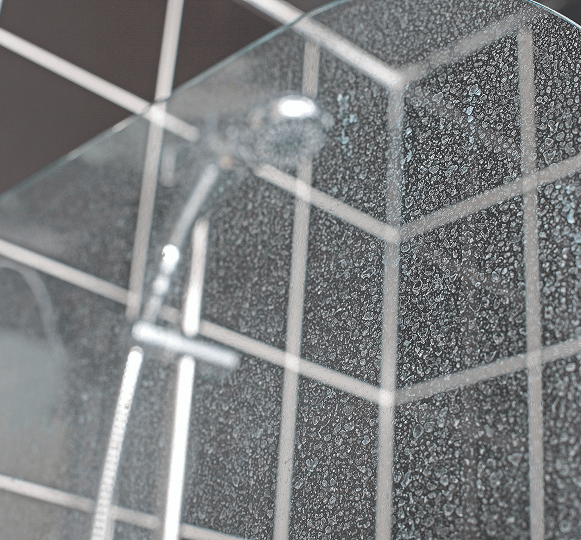

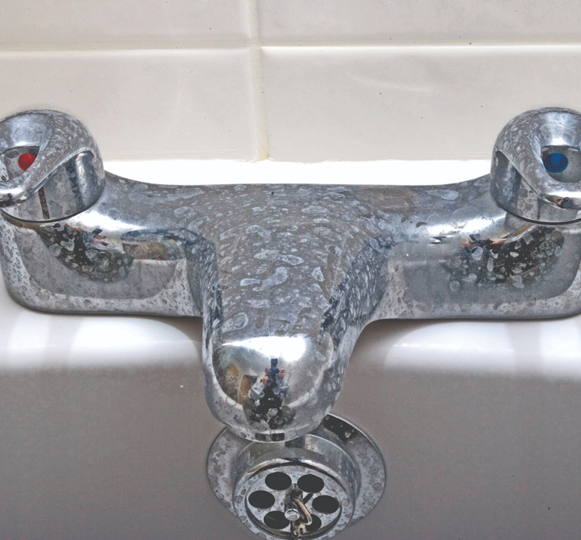
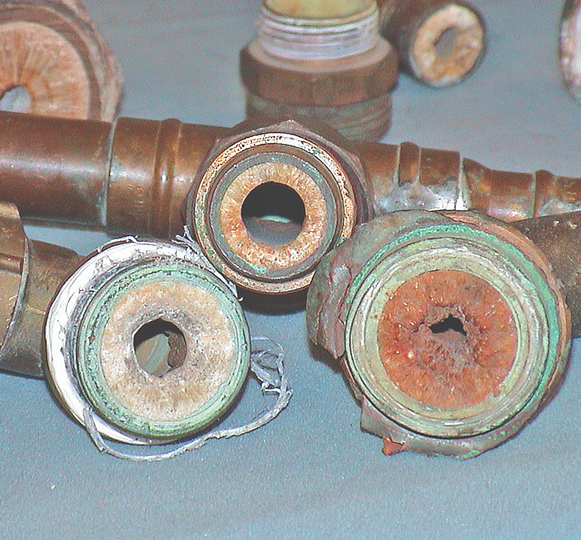

Water Softener:

Water softeners and water filters both improve water quality but through different methods and predominantly with different outcomes. Establishing what you are trying to eliminate or improve will help you decide whether you need a water softener, a water filter or both.
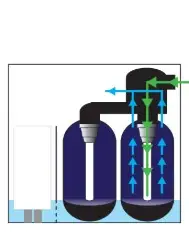
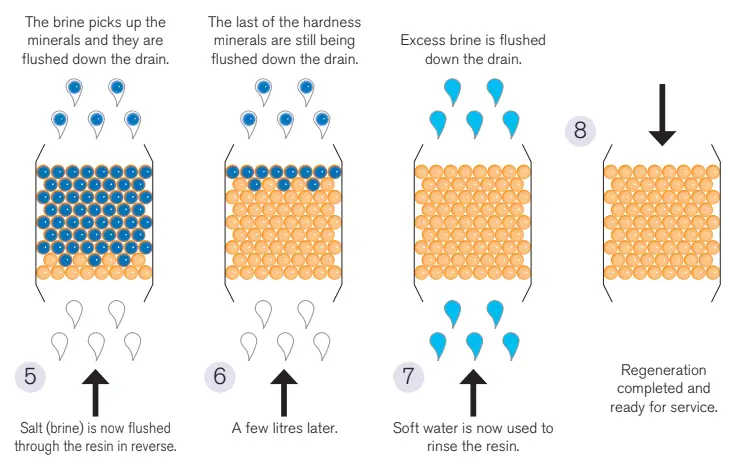
This is the basic concept of how water softeners work. Different types of water softeners will perform the regeneration process in a different way. We explain more on the page “Types of Water Softener”
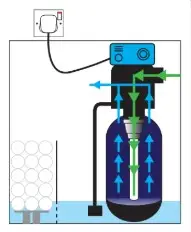

There are two main characteristics that distinguish types of water softener:
Twin cylinder, non-electric water softeners
Single cylinder, electric water softeners
£300
£1,500-£2,500
£100 p/a

£100 p/a
A water softener works through a process called ion exchange. Resin inside the water softener attracts minerals from the hard water. Over time the resin beads become saturated with hard water minerals and need to be ‘flushed out’ which is a process called regeneration.
All you need to do to keep this process running smoothly is refill your softener with salt when it falls below the indicated line on your softener.
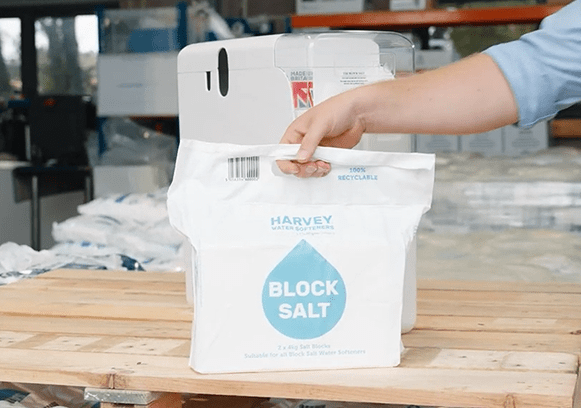
Typically used in non-electric, twin cylinder water softeners such as TwinTec or Kinetico water softeners
For use in the latest generation of Harvey water softeners, the TwinTec S5 or Cobalt, Harvey Arc and MiniMax Innova
This can be used in block salt machines. These can be a good option for people who cannot handle the 4kg block salt.


Should you wish to order some salt you can do so via our website.
You can place a ‘click and collect’ order through our website and collect from our unit in Three Legged Cross at your convience. Our opening times are 9-12am and 1-4pm Monday – Friday and we are also open on a Saturday 9am – 1pm.
For your convenience we also offer a salt delivery service. You can place a ‘delivery’ order through our website and we will deliver to you typically within two weeks. Should you have a more urgent need or have put the last blocks in two weeks ago and forgot please just gives us a call in the office and we will see what we can do.
Water is vital for our health, and we all drink more if know our water tastes great and is safe to drink.
Drinking water in the UK is carefully treated and monitored to ensure it is safe to drink. However, the quality can vary from household to household and personal tastes can differ. This is proven with the increased use of jug filters and high sales of bottled water, satisfactory but ultimately costly alternatives (with increased plastic usage).
The first question we ask when someone asks us about drinking water filters is “what do you want to remove from your drinking water?” or “is there anything in particular you are concerned about?”.
The reason we ask these questions is because there are many types of drinking water filters, and they can all do different jobs. Some customers are guided by budget, or simply great-tasting water. Others are concerned about microplastics, pharmaceuticals and are looking for comprehensive filtration.
To help give you an idea of what each filter does, we have created a table below
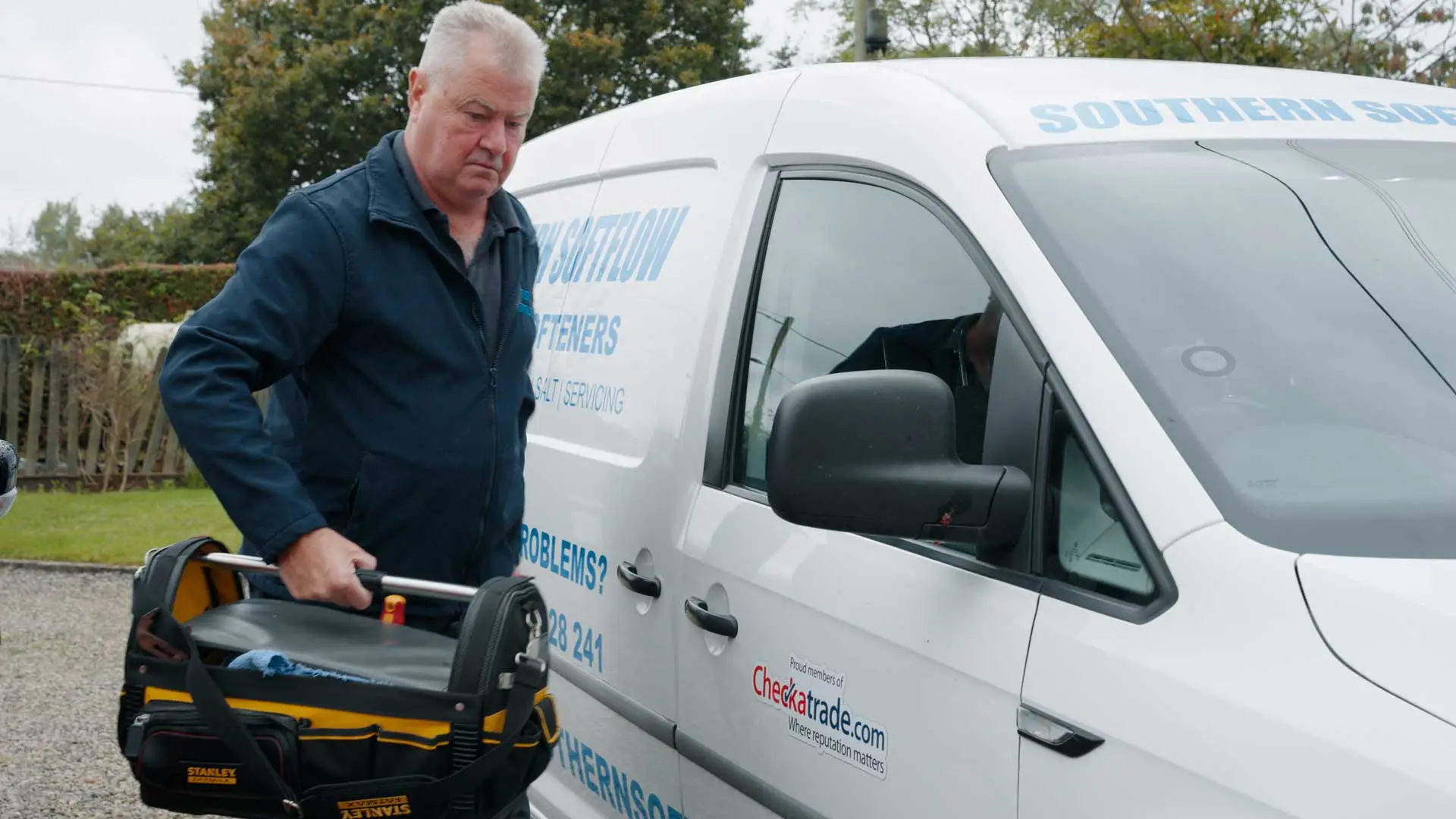
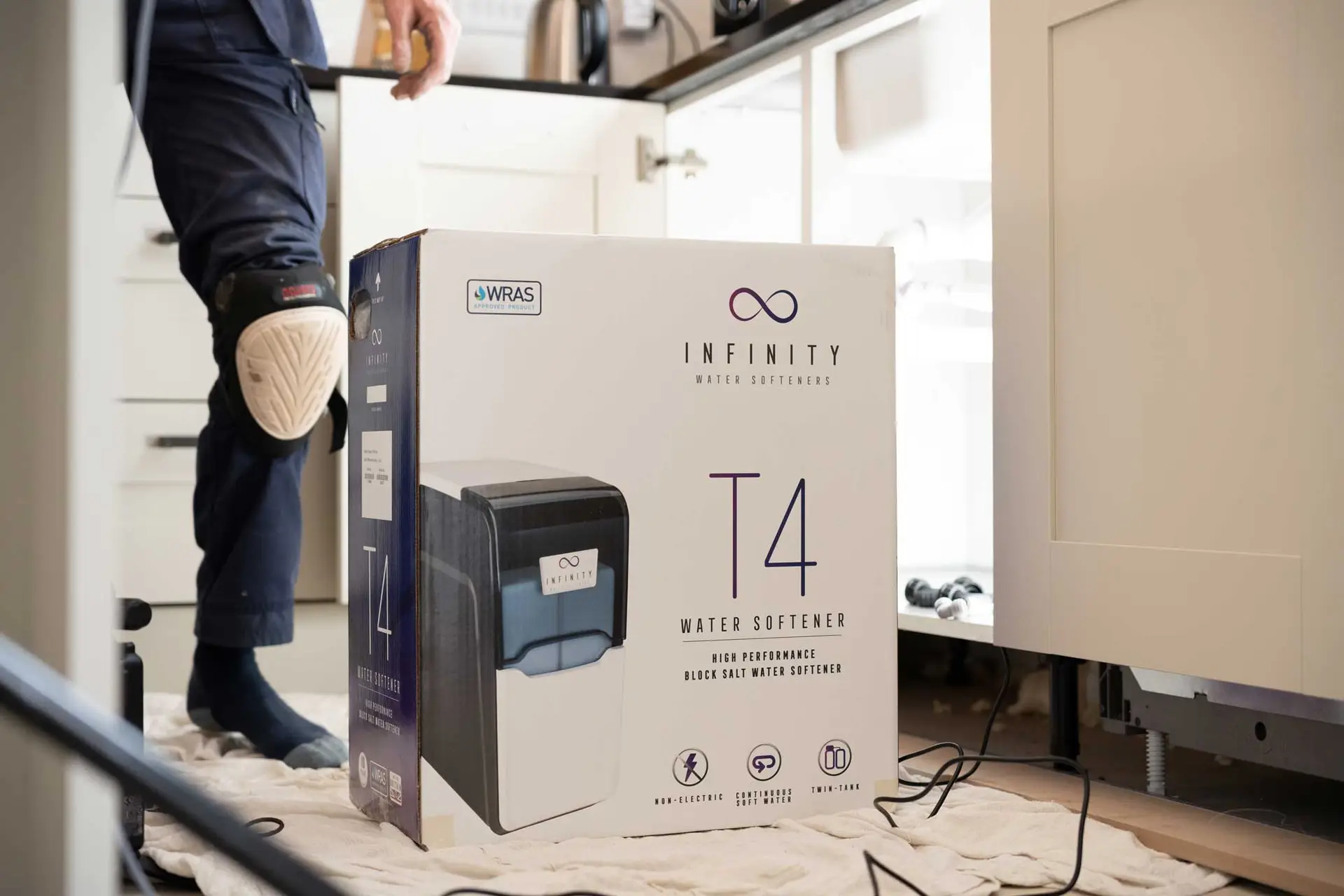

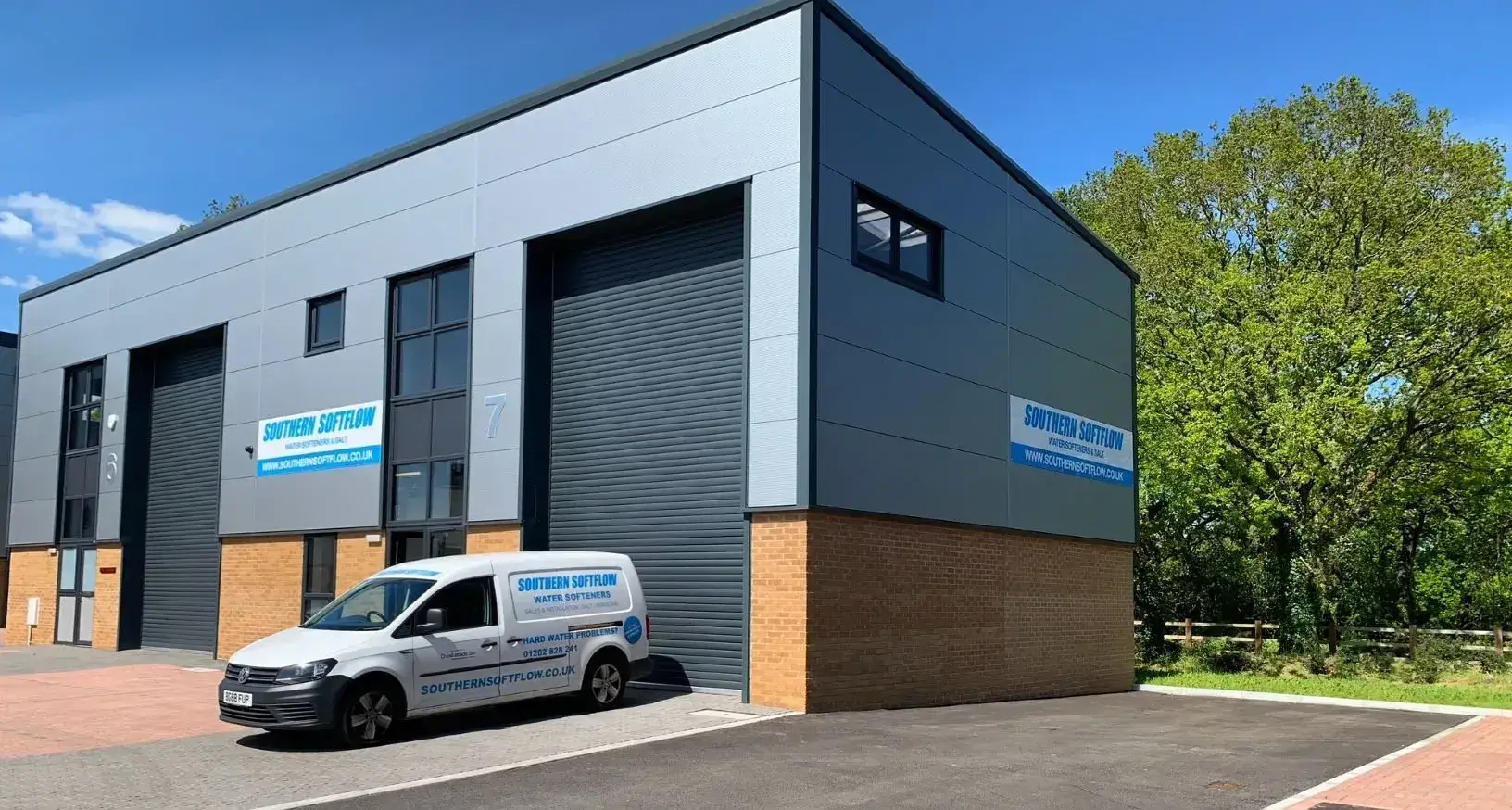
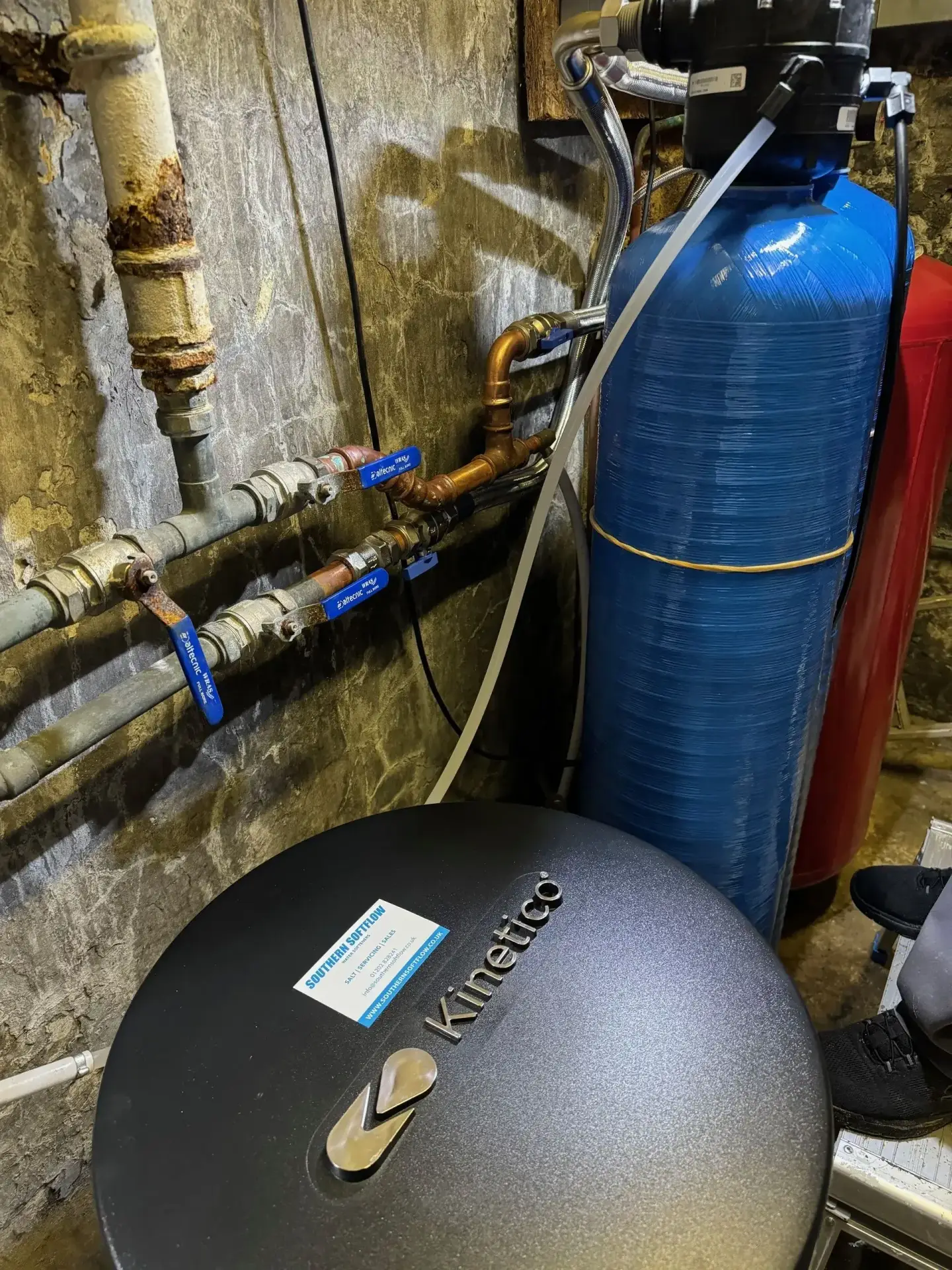
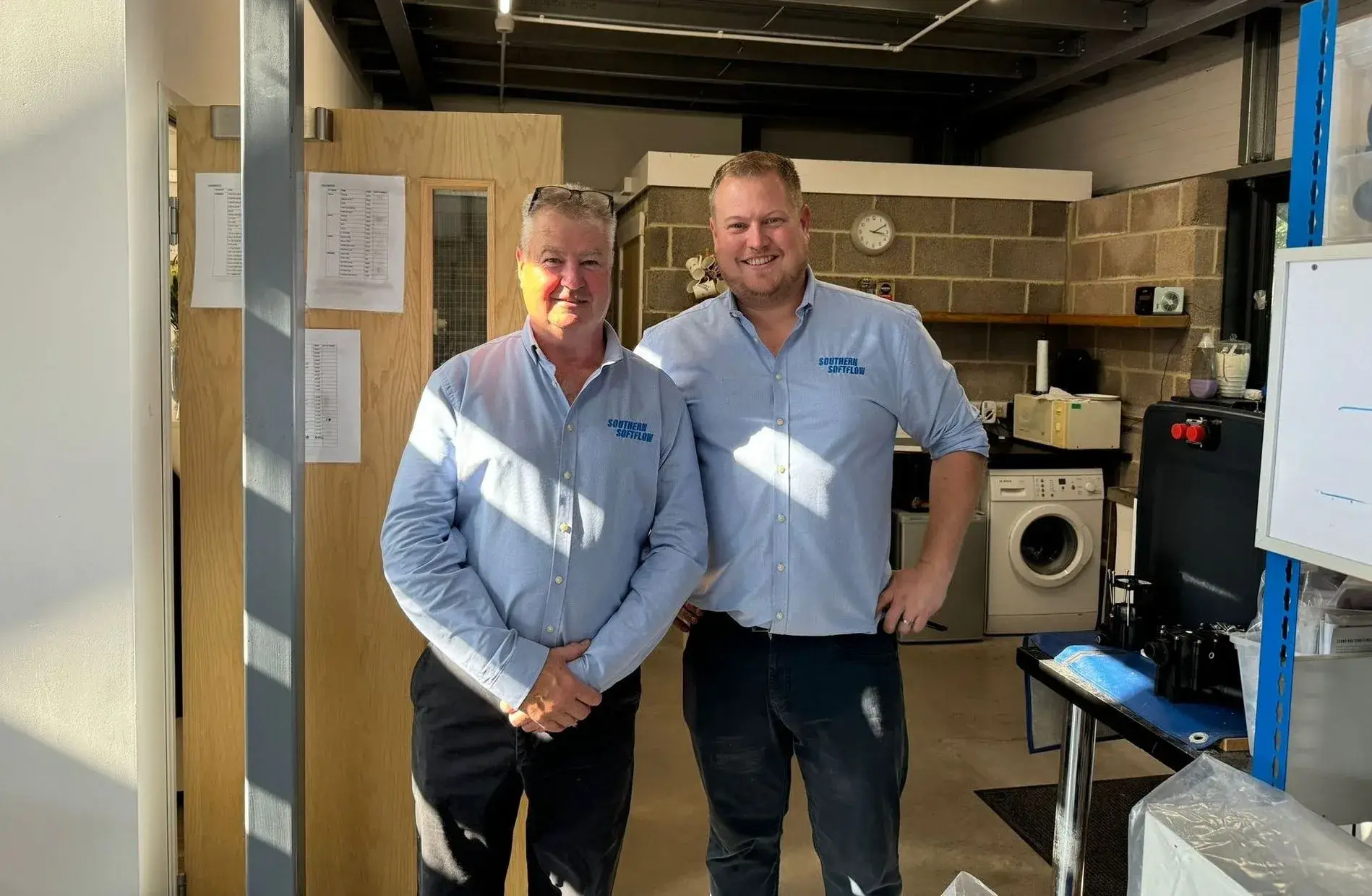


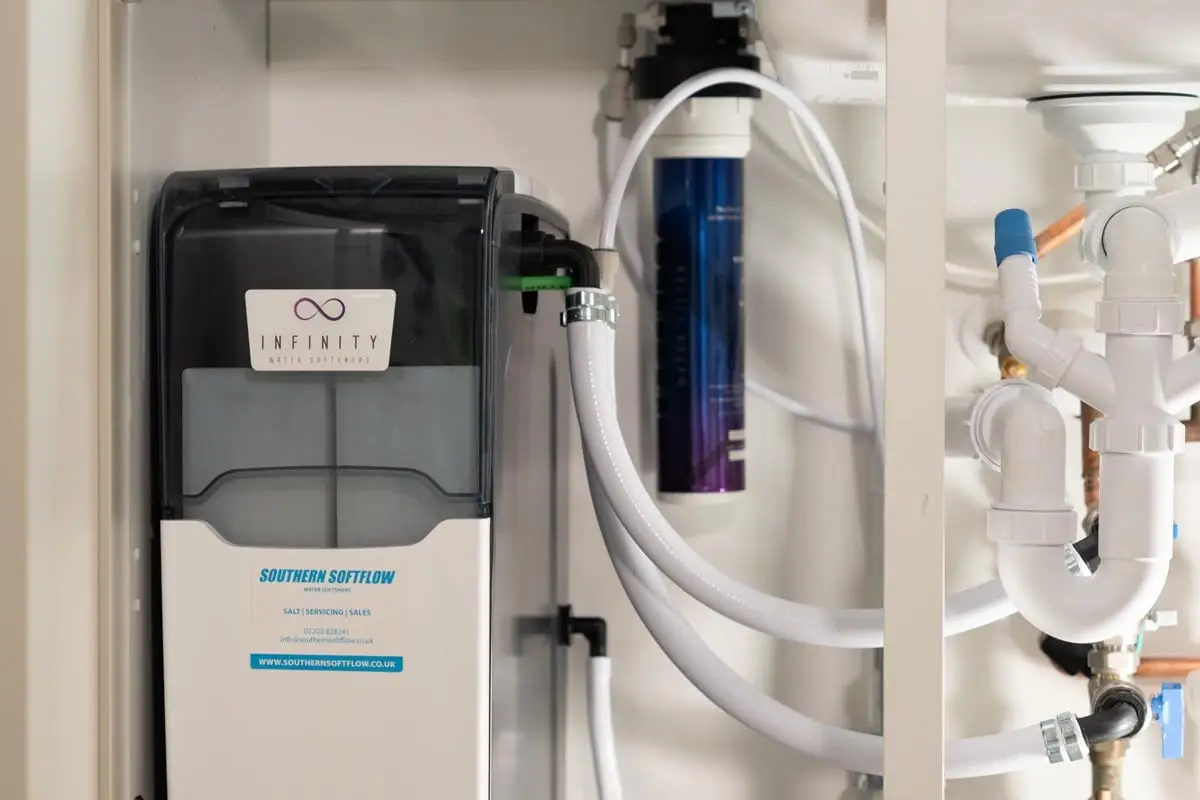
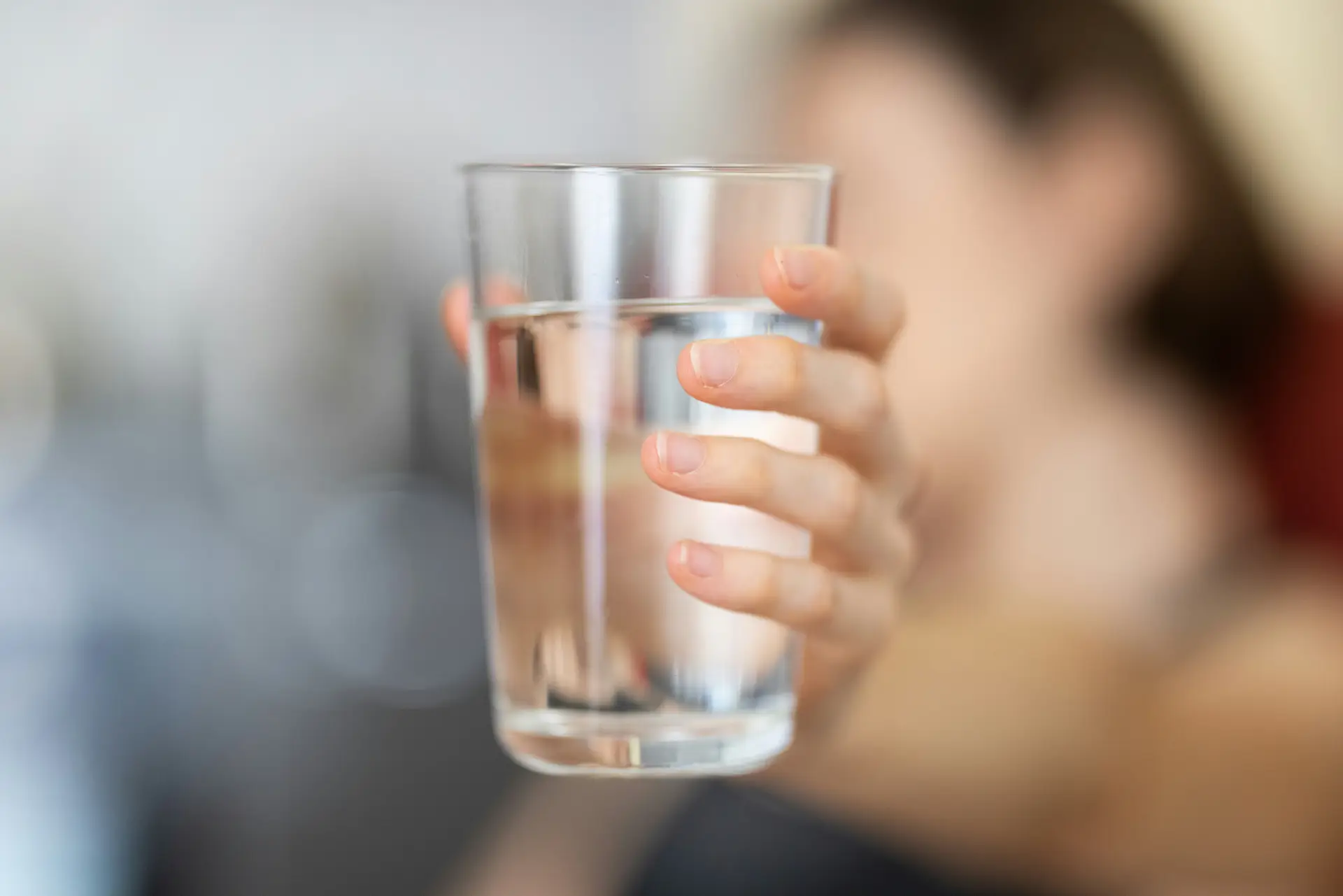
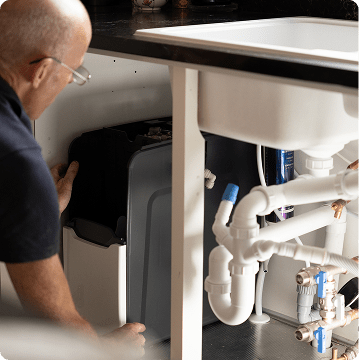
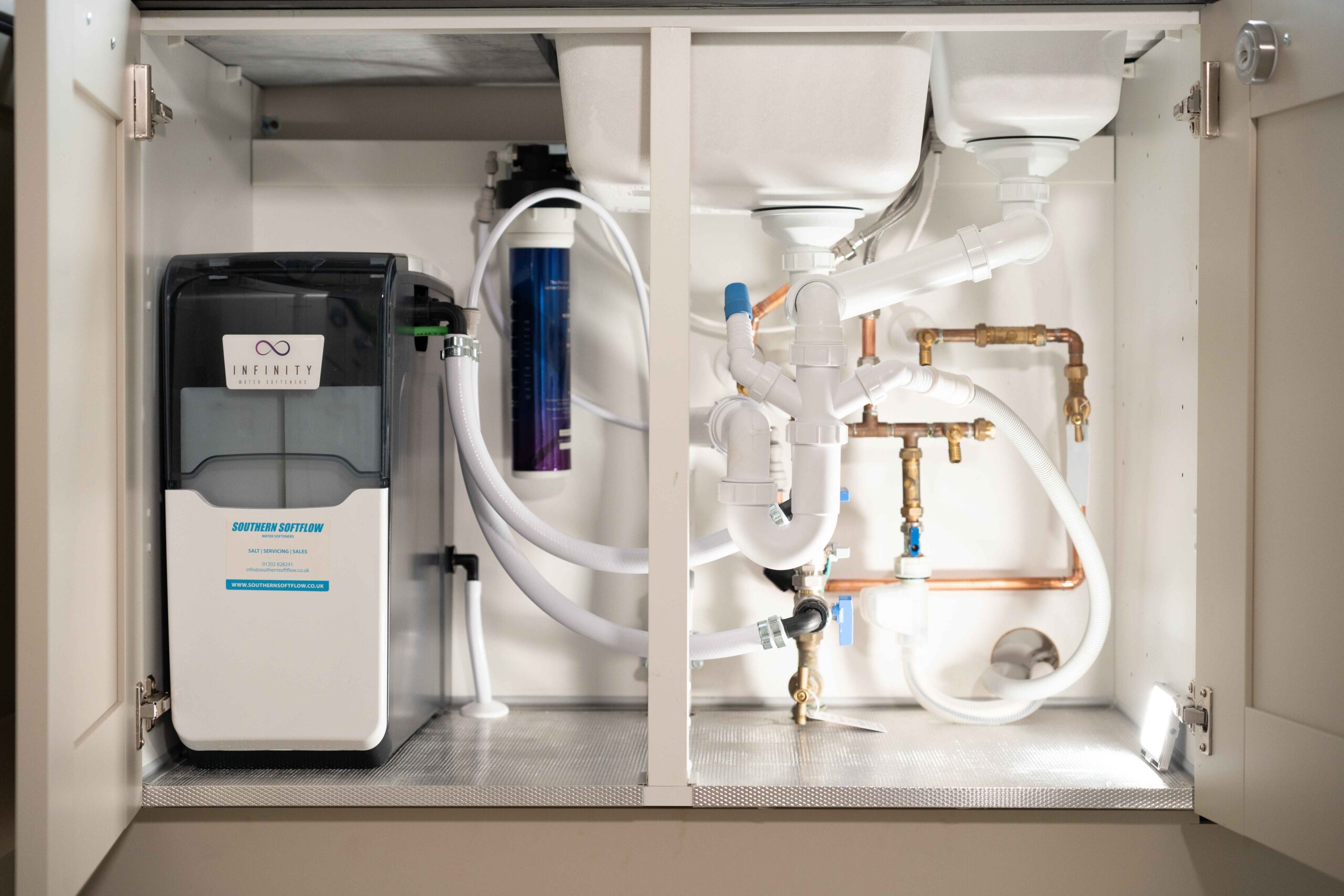
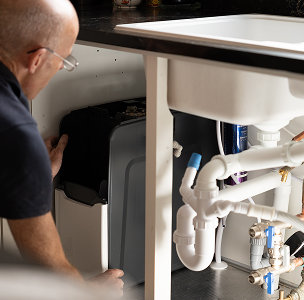
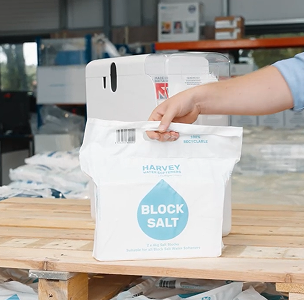
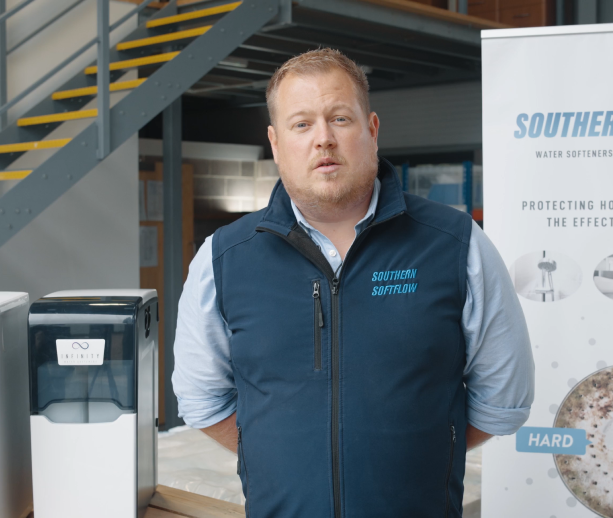







By subscribing you agree to with our Privacy Policy and provide consent to receive updates from our company.